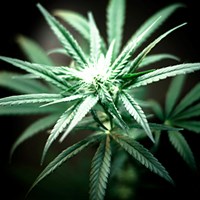Blowin’ In the Wind
(Reposted from the Labor & Employment Law Navigator Blog – Click Here to Subscribe)
President-elect Donald Trump has nominated Senator Jeff Sessions from Alabama as the new Attorney General. Senator Sessions has previously expressed his opposition to the legalization of marijuana. Therefore, it seems that the Cole Memo may be revisited. The Cole Memo is a major reason why marijuana continues to be legal medically and/or recreationally in 29 states, but still illegal under federal law.
On August 29, 2013, Deputy Attorney General James M. Cole published Guidance Regarding Marijuana Enforcement (the “Cole Memo”). In light of the legalization of medical and recreational marijuana occurring in many states, the Cole Memo sought to clarify the Department of Justice’s (“DOJ”) enforcement priorities. Some of the most important DOJ enforcement priorities with respect to marijuana are the prevention of:
- Distribution to minors
- Interstate movement
- Use of firearms in connection with marijuana
- Drugged driving
- Organized crime
Outside of the above enforcement priorities, the DOJ relies on state and local law enforcement to address marijuana activities.
However, under the incoming Attorney General, the Cole Memo might be revisited. Senator Sessions has been on record as saying there is a need to foster “knowledge that this drug is dangerous, you cannot play with it, it is not funny, it’s not something to laugh about… and to send that message with clarity that good people don’t smoke marijuana.” Further, he has also been critical of President Barack Obama even mentioning marijuana: “You can’t have the President of the United States of America talking about marijuana…You are sending a message to young people that there is no danger in this process. It is false that marijuana use doesn’t lead people to more drug use. It is already causing a disturbance in the States that have made it legal.”
One potential way to steer clear of Senator Sessions’s statements that marijuana is dangerous and addictive might be to focus on cannabidiol (“CBD”), and not tetrahydrocannabinol (“THC”). THC is the main psychoactive component of marijuana, and one of the reasons it might be labelled “dangerous.” However, CBD has no psychoactive effects and is used for relief from seizures, anxiety, and inflammations.
In the end, because marijuana is now legal medically and/or recreationally in 29 states, it is possible incoming Attorney General Jeff Sessions will be hesitant to abrogate the Cole Memo and undo all of the progress in this arena, and shutter nascent small businesses with the resultant employment loss and loss of tax revenue. However, based on his prior statements and stances, we are in uncertain times.
Follow our Marijuana Law and Policy Group on LinkedIn for more information regarding this and other developments.


